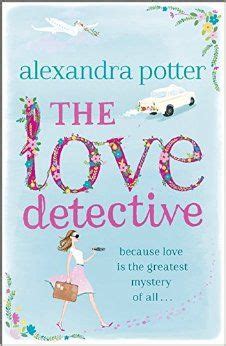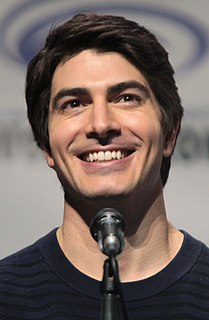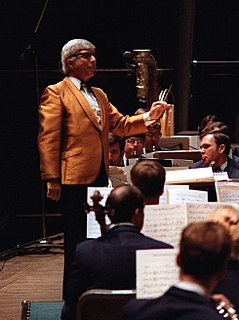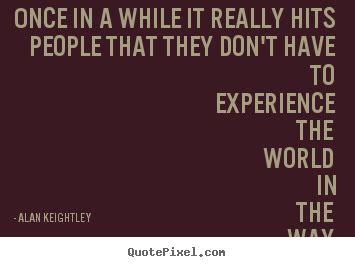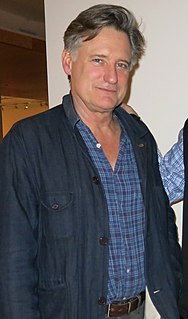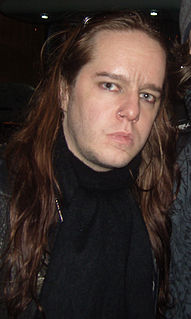A Quote by Nigel Hawthorne
On the stage you can get away with imposing the emotions on yourself, but with film it really has to come from inside. It's much more intense.
Related Quotes
Missing someone has to be one of the worst human emotions. All the other feelings like anger and fear and horror get some much more airplay, as if their intensity gives them more value, but whereas those emotions come in violent bursts and are gone again, the gnawing ache of loss has to be simply endured. It's like background noise, it's always there, it never goes away. You just have to try to block it out, distract yourself, hope that tomorrow the hole they left behind has grown a little smaller.
Really it's all about what's inside the Superman suit. How you feel about yourself when you put that on because it's very revealing and very imposing if worn with confidence, I suppose. The first time I wore it, I didn't have that as much. I hadn't really trained any, yet. I hadn't read the script, I hadn't really worked on the character at that point. And I was standing around with a room full of costume designers and everybody was judging me right away and going, "Don't make your judgment on it, if this is Superman quite yet or not," because I hadn't done all the work that I would later do.
I wrote a song called 'Red' and thinking about what that song means to me and all the different emotions on this album they're all pretty much about the tumultuous, crazy, insane, intense, semi-toxic relationships I've experienced in the last two years. All those emotions fanning from intense love, intense frustration, intense jealousy, confusion, all of that in my mind, all those emotions are red. There's nothing in between, there's nothing beige about those feelings and so I called my record that.
Film is more than the twentieth-century art. It's another part of the twentieth-century mind. It's the world seen from inside. We've come to a certain point in the history of film. If a thing can be filmed, the film is implied in the thing itself. This is where we are. The twentieth century is on film. You have to ask yourself if there's anything about us more important than the fact that we're constantly on film, constantly watching ourselves.
One of the things I do tell young women, if they want to pursue a career in acting, is to get good stage training. It is essential to have a good basis in stage technique. You can move into film easily, and acquire more skill and more understanding, but you can't necessarily go the other way around. For women, longevity of career will very much be on stage.
Where do you need to think for yourself? When we begin to cultivate awareness of our thoughts and emotions, we begin to see just how much we live according to other people's and society's beliefs and actions. Don't get upset by this. Just get in touch with how you really think and feel inside and begin to express your authenticity.
One cultivates spaciousness or awareness which allows you to acknowledge the emotions and see them as part of the human condition. Emotions are like subtle thought forms and they all arise in response to something outside yourself. They are all reactions. You cultivate a quietness in yourself that watches these emotions rising and falling and passing away.
Slipknot's music is very technical and intense, and it's not easy to play, but that's what makes it special. What's so gratifying about playing a show that is that intense is when you get off the stage, and you know you really delivered at the top of your ability and performance; that is what makes it all worthwhile.


